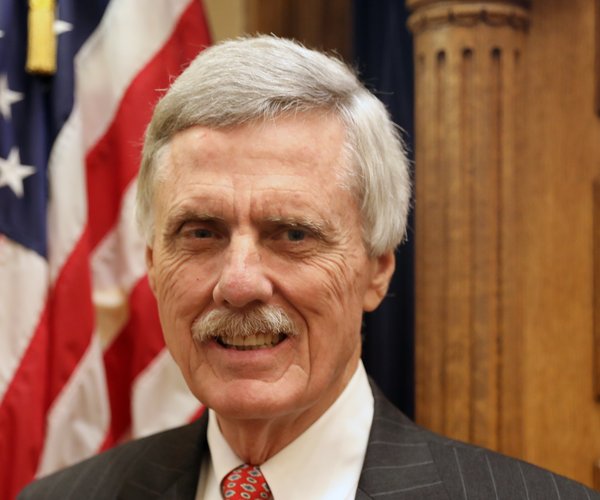The newest member of Georgia’s Public Service Commission wants to spread the word about solar power.
Tim Echols, elected to office in 2010, is promoting more widespread use of solar power — which he has at his home in Winterville, outside of Athens.
“Part of my agenda is increasing the solar portfolio that we have in Georgia,” he told the Effingham Rotary Club on Thursday.
The state has less than 1 percent of its energy in renewable forms, Echols said.
“How can we get more?” he asked.
There are state and federal tax credits available for installing solar heating, Echols added, and using solar could cut home electric costs by about 17 percent. He’s pushing for the University of Georgia and Georgia Southern University to turn use solar panels to create hot water in their dormitories — places where a lot of hot water is used.
“We’ve got seven kids,” he said, “so we use a lot of hot water. This is how you dip your toe into renewable energy. It’s still not cheap but it’s cheaper in the long haul. The way you view solar is that you’re buying all your fuel up front.”
Echols pointed to the new microsolar unit installed at the Driftaway Café in Savannah. The property owner, Dr. Sidney Smith, is selling the power generated through the unit to the restaurant. Dr. Smith may run afoul of the Territorial Electric Service Act, which governs who can generate power and where they can do it. Echols said he has urged Georgia Power to file a lawsuit against Dr. Smith.
“Dr. Smith is really challenging the status quo,” he said. “He’s trying to get folks to do something different and be more energy independent. As we enable individual Georgians to do this sort of thing, it’s just going to help us with our dependency on coal.”
Coal will continue to supply the lion’s share of the state’s energy needs, Echols said. More than 60 percent of the state’s energy needs come from coal-fired power plants, and 17 units are slated for either closure or emission controls.
“That’s a lot of equipment, like a catalytic converter on your car or a vacuum bag, put on the coal furnace,” Echols said. “And they’re taking that gas that’s coming off that furnace after it’s boiled that water and they’re running it through various places before it goes out that smokestack.”
What to do with those emissions, such as turning them into natural gas for more fuel, also needs inspection, according to Echols.
He’s also a proponent of compressed natural gas, and his 1999 Honda Civic runs entirely on CNG. There are only 10 CNG fueling stations in the state, and the nearest to Effingham is at Georgia Southern, where it has nine buses running on compressed natural gas.
Echols also wants to see the nation increase its reliance on nuclear power and change how it handles the radioactive waste generated by nuclear plants.
“The only aspect of commercial nuclear power operated by the government is the waste,” he said.
Reprocessing the nuclear waste and turning that function over to the private sector — which already ships the fuel to the plants, builds the plants and operates them — will be a hallmark of his PSC tenure, Echols said. Georgia residents have contributed more than $1.3 billion into a pool that is supposed to fund disposal of the waste, he added. But all that waste generated since 1990 at Plant Vogtle is still on site, he said.
“The government hasn’t picked up any waste,” Echols said. “The fund is at over $30 billion and Congress has spent that money.”
France, which relies on nuclear power for 82 percent of its energy needs, reprocesses 97 percent of its nuclear waste for more fuel, according to Echols. The U.S. gets 21 percent of its power from nuclear plants.
“After Three Mile Island, we stopped building nuclear plants,” Echols said. “The French continued building them while we were sleeping. They are the foremost experts in the world. They are so far ahead of us, it’s amazing.”
Work has started on two new reactors at Plant Vogtle, and those units should be finished and running within five years. Plant Hatch, the older of the state’s two nuclear plants, provides about 9 percent of Georgia’s electricity needs. The two plants combine to generate nearly 20 percent of Georgia Power’s electricity, and Vogtle supplies Alabama with 19 percent of Alabama Power’s electricity.
Echols said he was proud that the work on two new reactors at Vogtle is ongoing but was disappointed about the cost overruns.





